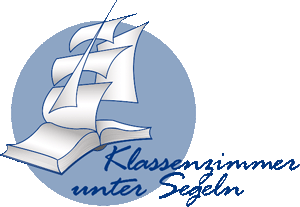written by Jona
Imagine 34 young pupils taking over a traditional fifty meter long sailing ship that has the global-positioning-system switched off. What will happen? Will they get lost somewhere in the great oceans and never come back? Will they even collide with another ship? Hopefully nothing of this will happen when the ship is taken over.
But what does “taking over the ship“ mean?
The 34 students are ”taking over“ every job that has to be done on a tall sailing vessel like the Thor Heyerdahl. Everybody who is interested in taking part has to write an application for the particular job. In the following days our whole “senior crew“ is busy with reading and discussing our applications. On decision day, the results are presented to us in a ship assembly. Every job like the captain, first and second mate, boatswain, project manager, engineer, mess stewards and the heads of watches are taken over.
Now this new team has to prepare the next days and get a solution for some nautic tasks. The preparation includes the drafting of new plans and the discussion of the right behaviour in emergency cases. Afterwards the students are in almost complete control of the ship. Therefore, the adults only take care that nobody gets hurt and nothing is damaged. They only intervene in emergency cases. Thank God, something like that has not yet occured during our journey.
But what changes for the students who are taking over certain positions? To explain this it is important to know that every ship has a special hierarchy. The captain has the most responsibility for both the nautical and the social part aboard. Thus, he is the one making the final decisions. But there are other important positions as well, like first and second mate and the project manager. Of course it will not be possible to sail the ship without the rest of the crew.
The special part of the second „taking over the ship“ is the navigation without the use of the global-positioning-system. Thus, we have to navigate with the sun and the stars only: astronomical navigation. After a couple of days the astronomically determined position is compared with the GPS-position.
During the whole trip we have three „taking over the ship“s . Each time the students have the possibility to prove themselves in different situations, master new tasks and tackle new problems. It is a unique opportunity for young teens to take over such responsibility for both their friends and the ship and to become more independent and grown-up by making their own decisions. Therefore, we are already looking forward to the next „taking over the ship“ off the coast of England.

